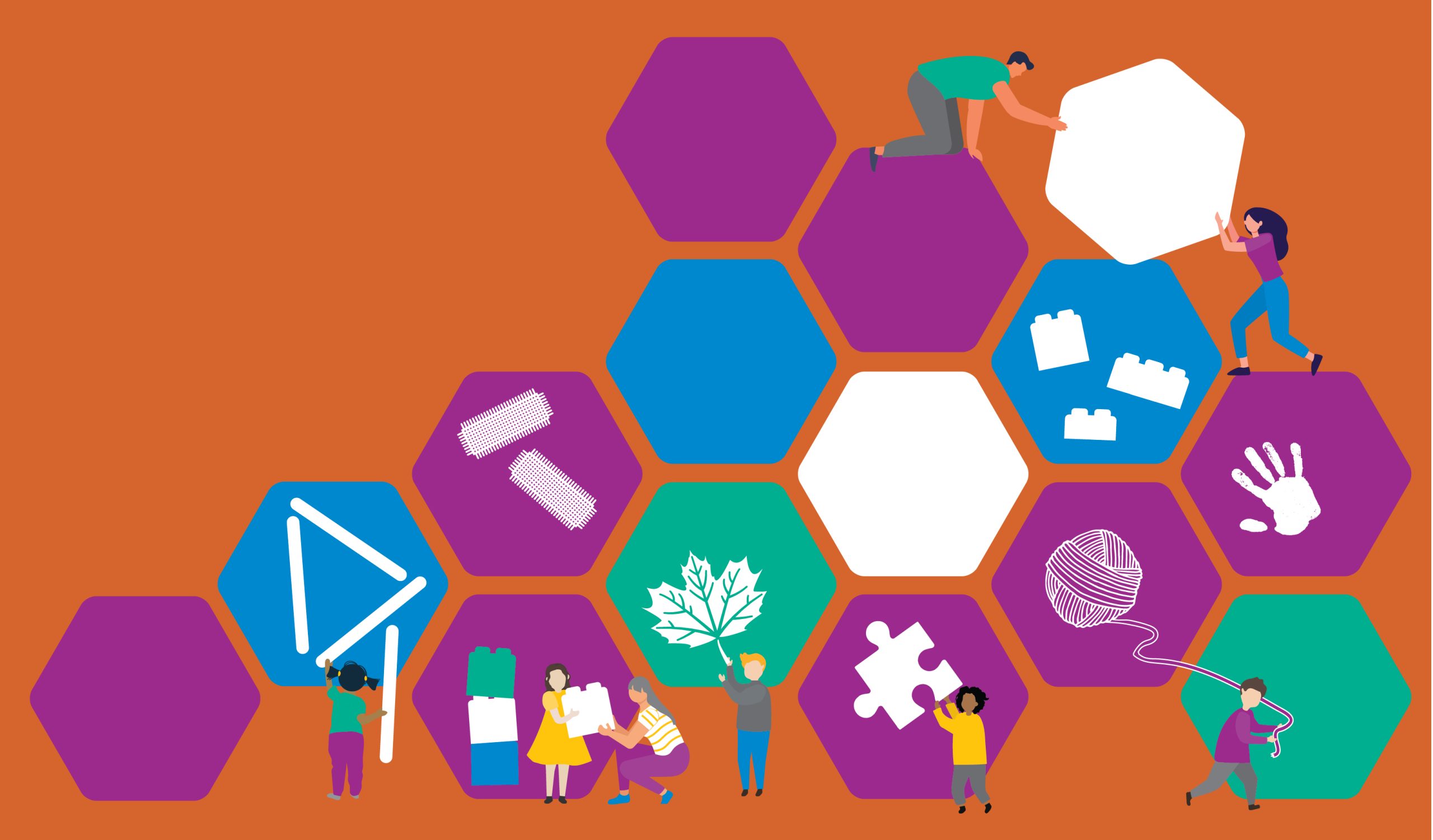
Nurturing Distributed Leadership in Early Years Services Report Launch
- Nov, 2025
- |
- Children and Families, Education
- |
A new report from Preparing for Life’s Early Years Team, in collaboration with five community-based Early Years Services in Dublin 5 and 17, explores how distributed leadership can be lived and sustained in practice.
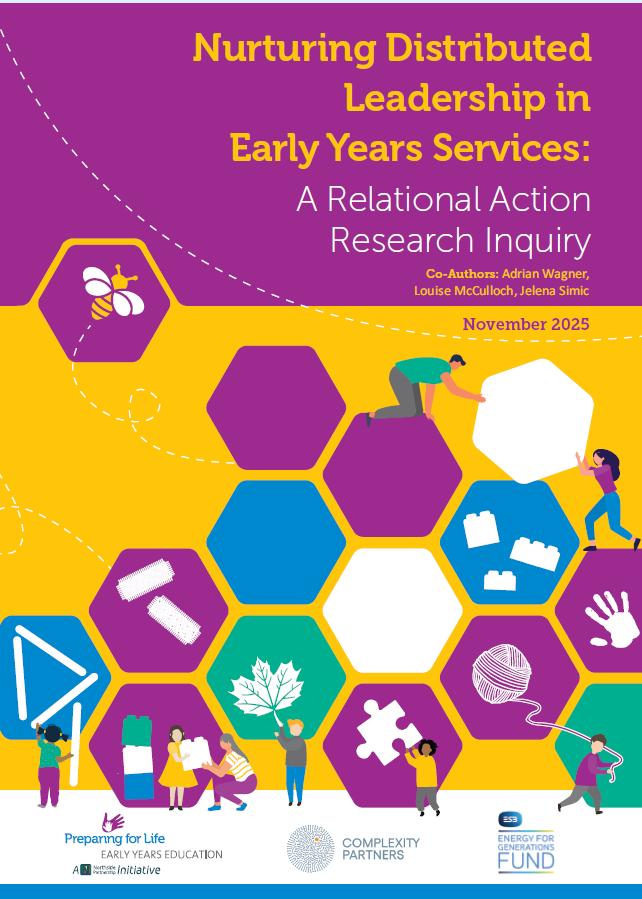 Click on this link to read the full report.
Click on this link to read the full report.
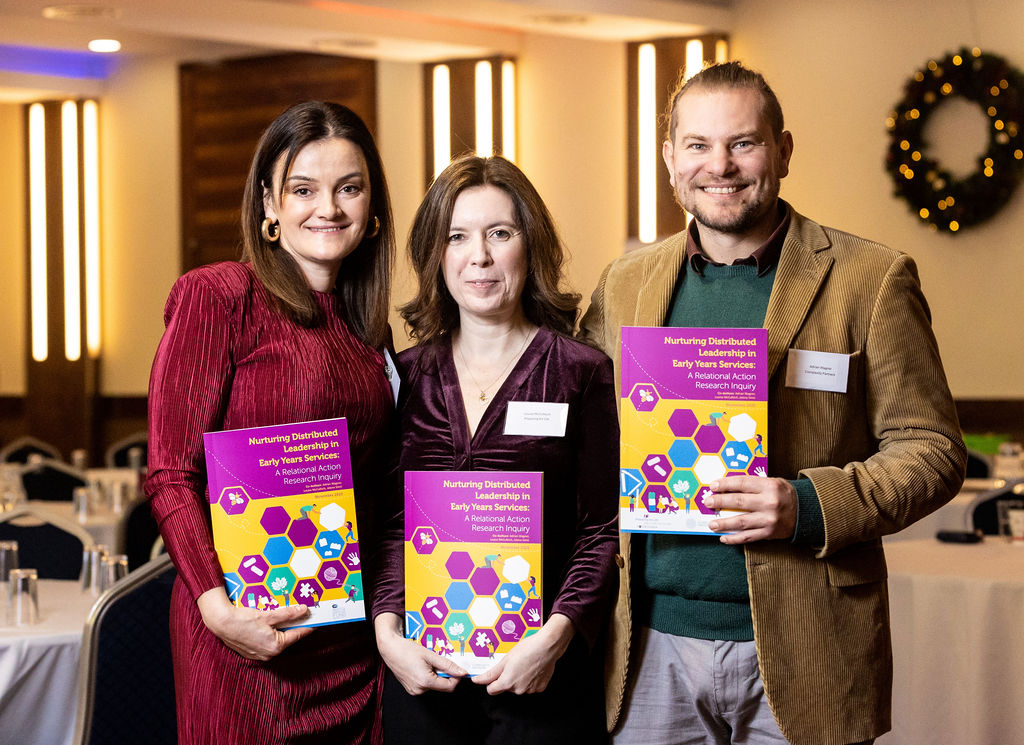
Co-authored by Jelena Simic (Early Years Programme Coordinator, Preparing for Life), Louise McCulloch (Research Coordinator, Preparing for Life), and Adrian Wagner (Complexity Partners), the report moves beyond theory to show what supports, structures, and policies are needed for leadership to thrive. The report was prepared with the support of ESB Energy for Generations Fund.
The community early years services who collaborated on the research are Bonnybrook Early Education Centre, Doras Buí, Edenmore Early Education Centre, Kilbarrack Foxfield Community Preschool and Afterschool and Moatview Early Education Centre.
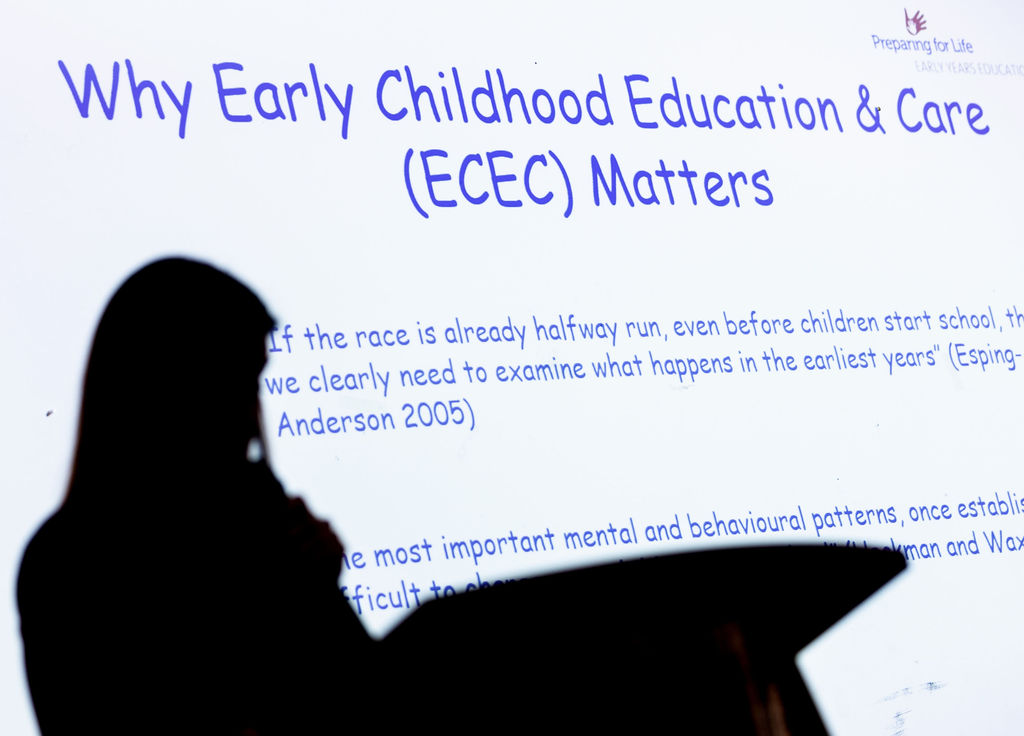
Why This Matters
Early Years Services work in complex environments where needs change daily. Leadership cannot be reduced to compliance or titles. Distributed leadership – where responsibility and decision-making are shared – strengthens quality, resilience, and collaboration.
At the launch, thought leaders from across Early Years Education shared their perspectives.
Professor Mathias Urban, Desmond Chair of Early Childhood Education and Director, Early Childhood Research Centre, Dublin City University, explained that existential crises are no longer the exception. “Children are the silent victims,” he said. “Resilience, survival, equity, justice, peace: these concepts are centre to the discussion around early years childcare.”

He went on to quote Eduardo Galeano (1940-2015): Questions and answers that are new questions:
“Unlike solidarity, which is horizontal and is exercised as equals, charity is practiced from the top down, humiliates those who receive it and never alters power relations even a little: in the best of cases, ever. There will be justice, but in high heaven. Here on earth, charity does not disturb injustice. It only intends to hide it.”
Key Messages from the Report
1. Distributed Leadership is a Living Practice
Leadership is not a checklist – it’s relational and dynamic. Educators lead every day through collaboration, reflection, and shared decisions.
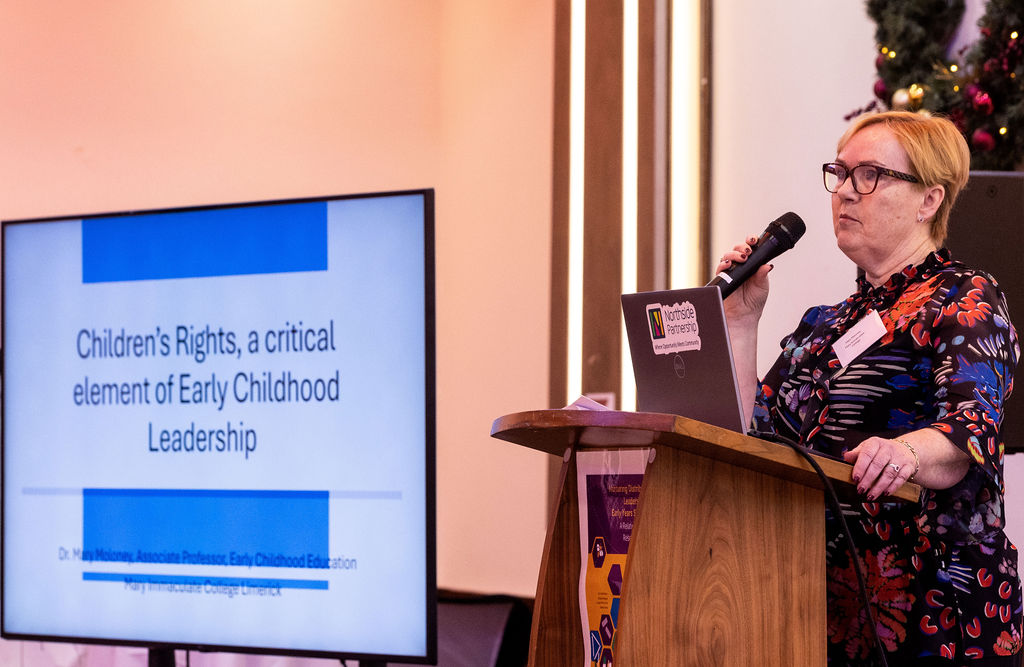
Dr. Mary Moloney, associate professor, senior lecturer in Mary Immaculate College, acknowledged the commitment of Early Years Educators to this action research project. “Leadership is acting in the best interest of the child.That’s what gets you up in the morning,” she told educators.
2. Equitable Access to Professional Learning
Smaller services face barriers to training. The report calls for flexible, inclusive pathways that recognise prior learning and allow educators to study while working.
3. Relational Cultures Must Be Nurtured in Policy and Practice
Policies should mirror the values of trust and collaboration that underpin quality practice. Educators want a voice in shaping the policies that affect their daily work.
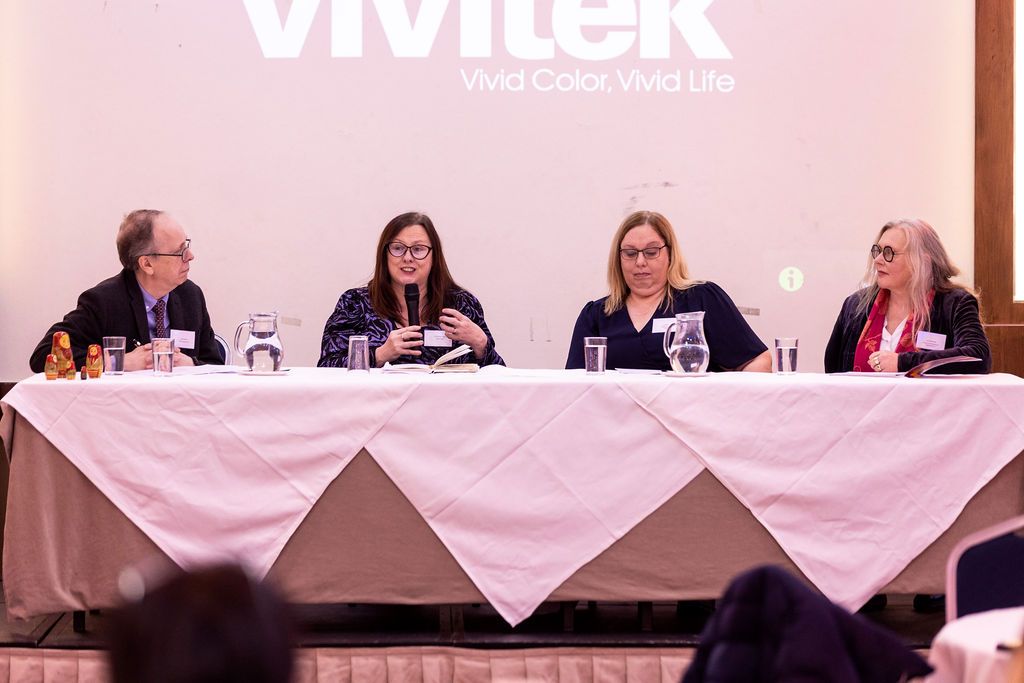
In a panel discussion, including Dr. Roisin McCooey (Better Start, Pobal), Lynnette Monk (Early Years Manager) and Dr. Joan O’Donell (Systems Complexity in Organisations), calls were made for the experience of Early Years Educators, Managers and Pedagogical Leaders, which have sometimes been ignored in research, to be included in policy making.
“These roles are often under resourced and underpaid, and too often invisible to policy making processes”
‘This is a significant piece of work, not just because it captures the complexity early childhood educators are working with, but also because it honours, and respects their wisdom, in a place where their expertise has been marginalised,” according to Dr. O’Donnell. “These roles are often under resourced and underpaid, and too often invisible to policy making processes. This report is testimony to the deep relational practices that emerge when people are supported to do their best work. I have no doubt it will lead to the emergence of better outcomes for children who are at the heart of it all. ‘
4. The Early Years System Must Embrace Complexity
Rigid compliance doesn’t work in relational settings. The report advocates for learning systems that support reflection, feedback, and adaptation.
5. Reflective Spaces Are Essential
Leadership needs time and space for reflection – not just on pedagogy, but on identity and values.
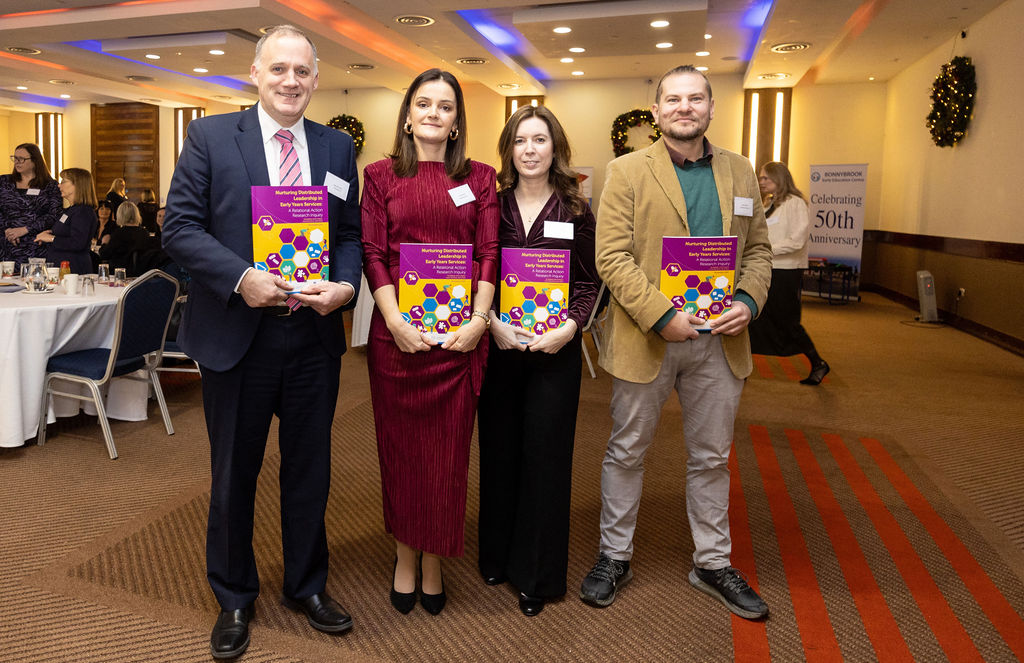
Recommendations
• Create reflective spaces for leadership practice
• Invest in mentoring, coaching, and peer learning
• Provide equitable access to professional development and recognise expertise beyond qualifications
• Nurture relational cultures of leadership in policy and practice
• Build learning systems that recognise complexity
Why Now?
Community Early Years Services are vital for prevention and early intervention. They work in areas of high social injustice, supporting children and families with complex needs. Distributed leadership helps these services respond flexibly and sustain quality.
“If baby is to be supported to be the best person they can be, it is so important that we nurture our parents, our practitioners, service providers and continuously strive to model positive ways of relating and connecting in our everyday decisions as well as high level policy decisions,” according to Bernie Laverty, Area Based Childhood Manager with Tusla.
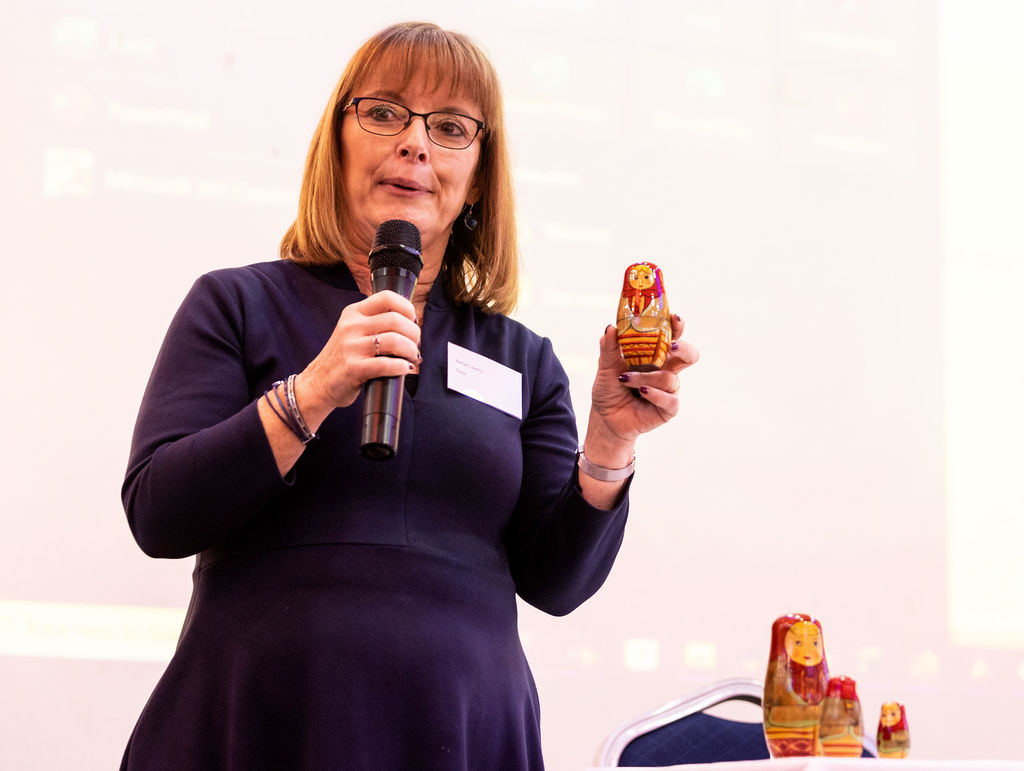
She continued with a quote from executive coach, Caroline Duffy:
“The most powerful leadership tool isn’t a book or a model; it’s in your own awareness …
When leaders face complexity, many ask for tools, new frameworks, models or strategies to help them navigate ambiguity and politics. And yet as we work together something deeper unfolds. They begin to see that they themselves are their greatest resource. It’s not the next toolkit or framework but their own awareness, maturity and capacity to stay present when things feel uncertain, which can generate different outcomes,
It’s the move from
- Reacting to reflecting
- Defending to inquiring
- Holding a position to holding a space
We don’t need a bigger toolkit we need a deeper connection with our own inner operating system.
“And from what I have read in this report you have taken the time reflect, to inquire and hold space to continuously strive to ensure you are delivering the highest quality early years services to your children, families and community,” Ms. Laverty concluded.
The last word went to Early Years Manager, Leanne Carr, who said,
“[Because of this action research] I feel heard.”
